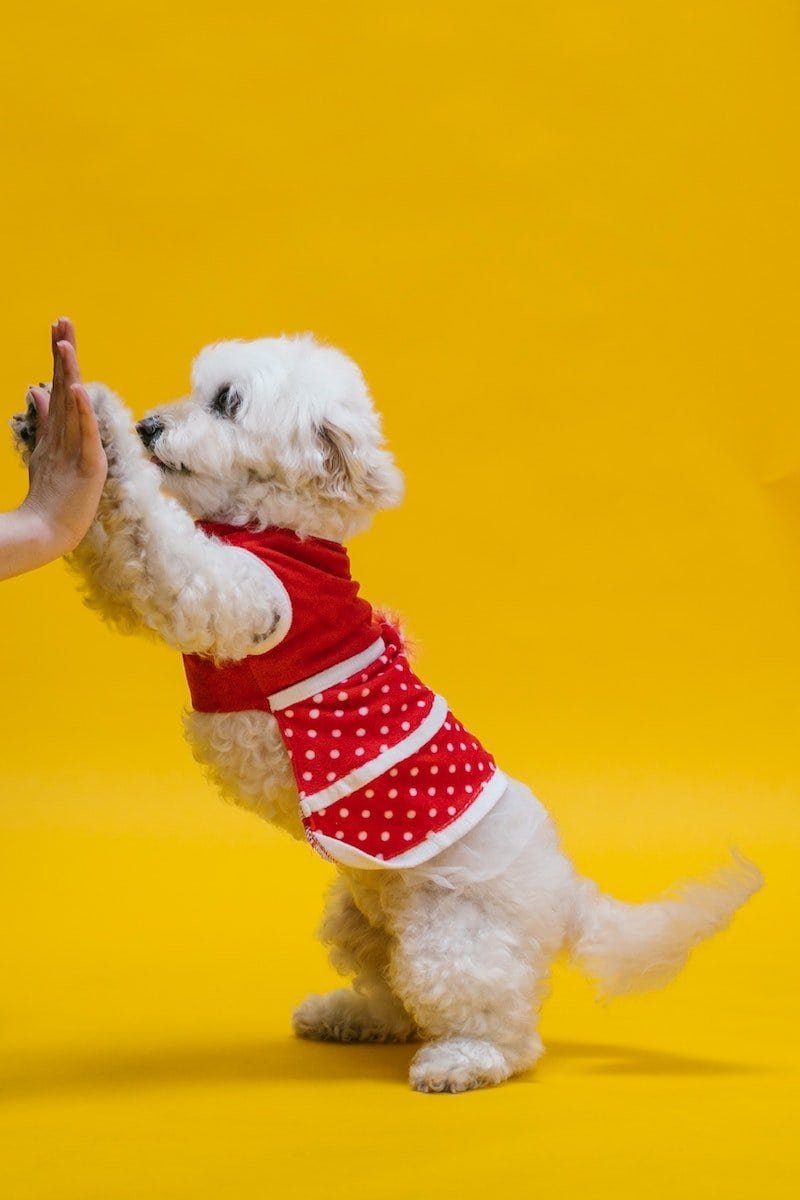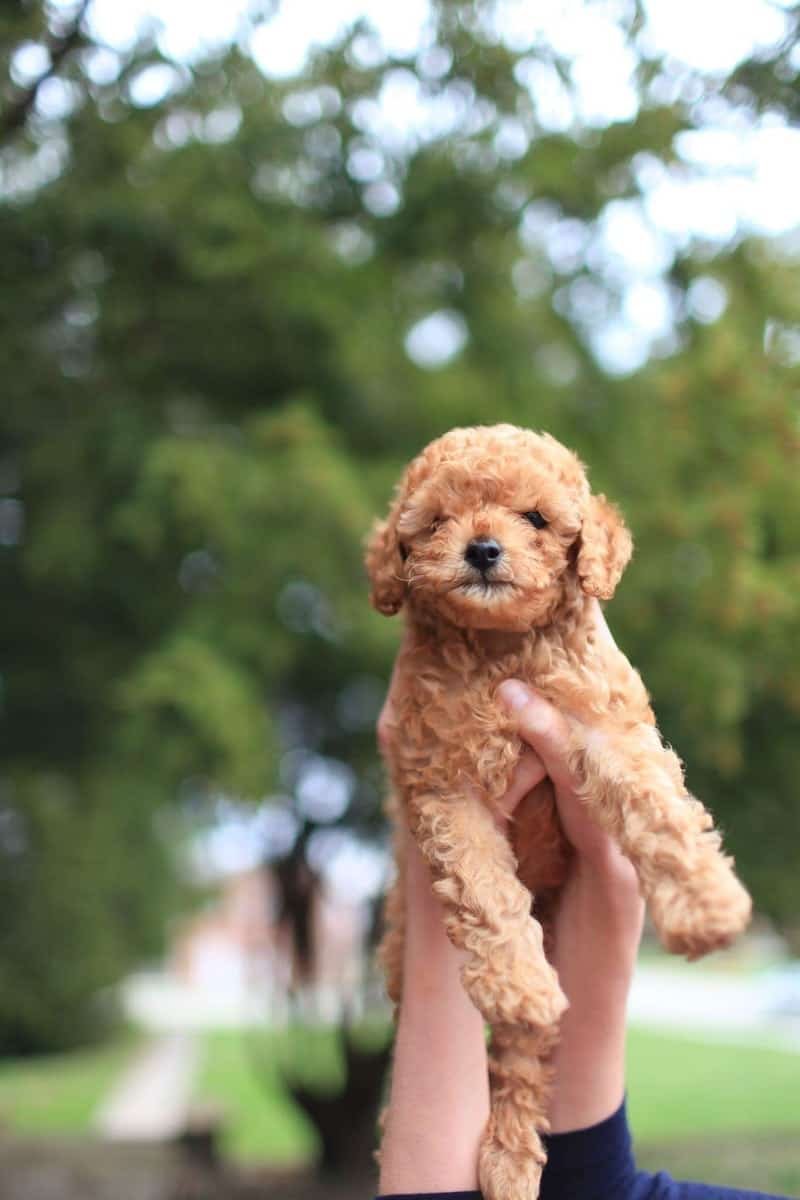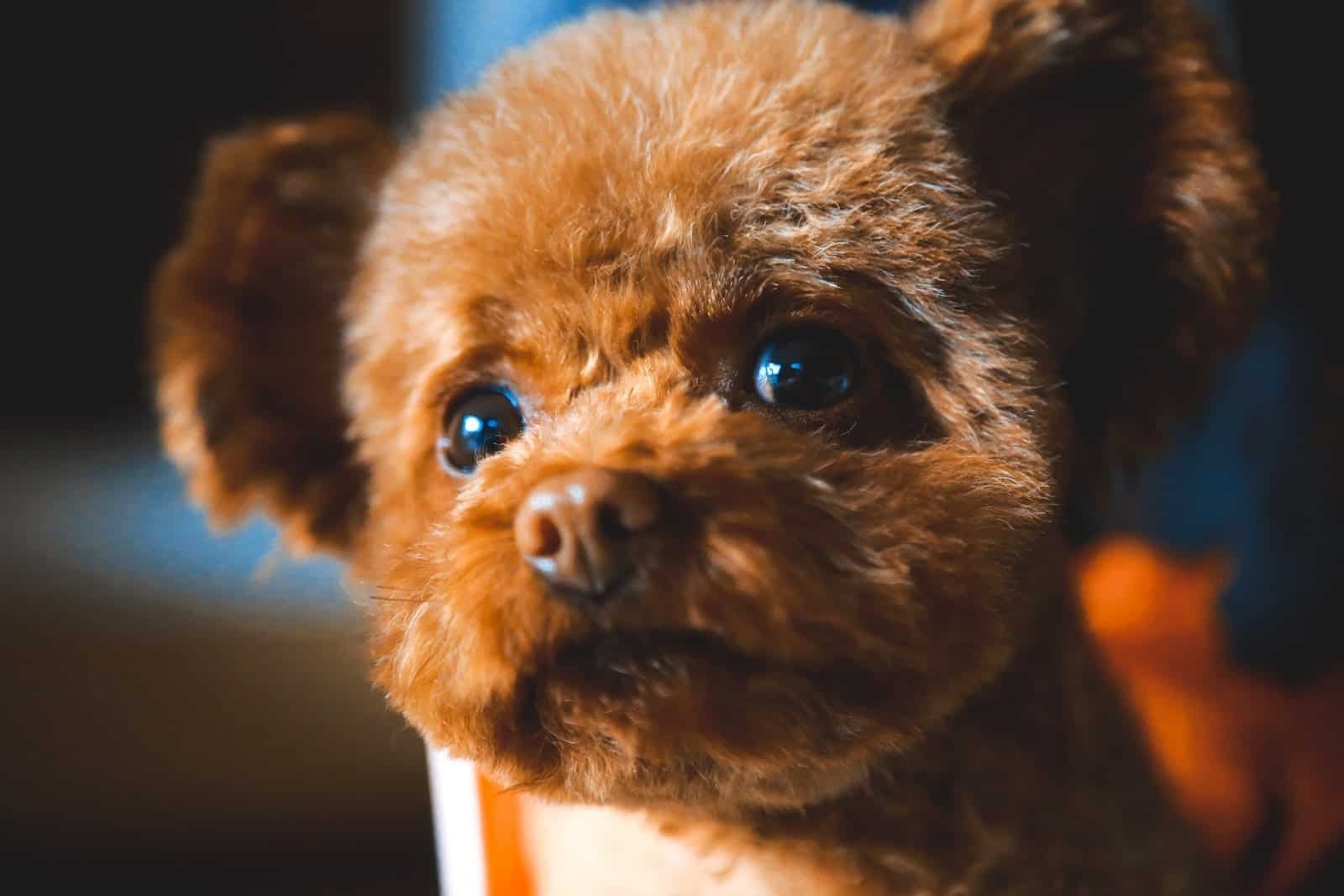
When it comes to the world of canines, Poodles are a breed that stands out in more ways than one. Known for their distinctive curly coats and often seen prancing around show rings with an air of elegance, Poodles are a breed that’s hard to ignore. But there’s far more to this popular dog breed than meets the eye.
Renowned as one of the smartest dog breeds, Poodles possess an impressive combination of beauty and brains. Once hunting dogs, these intelligent canines have become famous for their versatility worldwide.. In fact, they’re so beloved that they became the national dog of France – even though they actually originated in Germany!
The poodle’s personality is known for its intelligence, energy, and sociability. Whether you’re considering bringing home a standard poodle or you’ve got your eye on a miniature or toy poodle puppy from a reputable breeder, it’s important to understand that all sizes of Poodle come with big personalities! This active dog thrives on mental stimulation and physical exercise alike. To keep your poodle happy and healthy, you should provide mental stimulation. This can be done by playing fetch or participating in dog sports..
Understanding Poodle health is also key for any potential pet parent. Adopting from a poodle rescue means understanding poodle health concerns..
Lastly, but certainly not least, grooming a poodle may seem like the task because of their curly coat, but don’t fret! With regular grooming sessions (remember: brush your poodle at least once per week!), maintaining your four-legged friend’s fabulous curls isn’t as daunting as it may initially seem.
In essence, whether you’re drawn by the breed characteristics or charmed by each individual “French” Poodle personality trait – owning one of these iconic dogs is truly a unique experience. The poodle dog breed information you’ve read here is just the tip of the iceberg, there’s plenty more to learn and love about this popular breed!
Poodle Personality: Understanding the Characteristics of this Popular Dog Breed
Delving into the world of the poodle breed, it’s important to understand that these dogs are much more than their often fancy appearance would suggest. As one of the most popular dog breeds, according to the American Kennel Club, they’re known for their intelligence, versatility and vibrant personality traits.
The Poodle Breed
Originally a hunting dog originated in Germany, and later adopted as the national dog of France (often referred to as “French Poodles”), poodles come in three sizes – standard, miniature and toy. While each size has its own unique characteristics and health considerations, they all share common breed characteristics such as a curly coat (which needs regular grooming), alert temperament and an active lifestyle.
It’s also worth noting that regardless of size – be it a smaller toy or larger standard – you’ll find these dogs participating in various activities ranging from dog sports to providing companionship at home. This is largely due to their adaptable nature which allows them to thrive in almost any environment.
Intelligent and Trainable
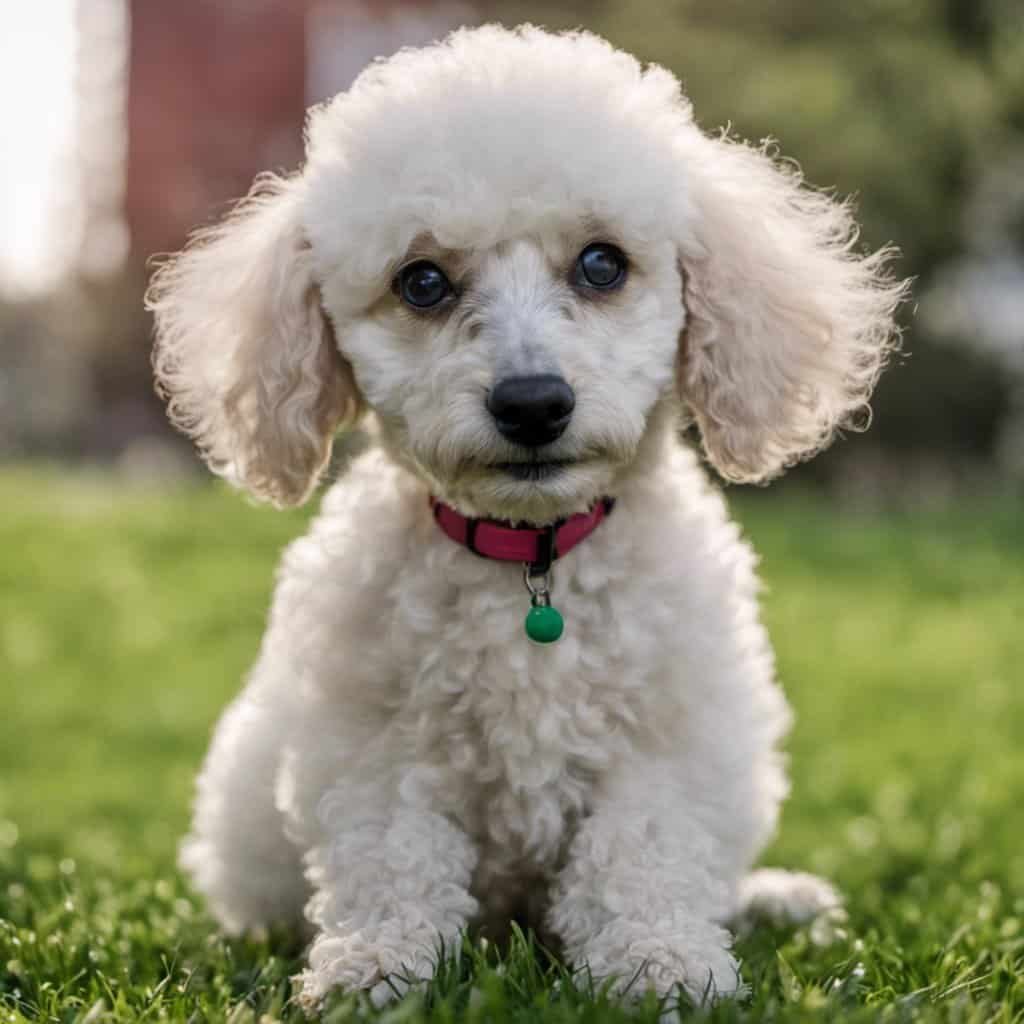
Alert and Instinctual
Poodles are known not just for being among the smartest dogs but also for their keen instinctual behaviors. Whether it’s a Standard Poodle energetically retrieving items or a Miniature Poodle attentively obeying commands during training sessions – these intelligent creatures never cease to amaze pet parents with their capabilities.
Training your Poodle becomes an enjoyable endeavor thanks to their quick learning ability coupled with an innate desire to please owners. However, remember that like any other breed; consistency and positive reinforcement are key components in shaping your Poodle’s behavior.
So whether you’re considering adopting from a poodle rescue or purchasing from a reputable poodle breeder bear these aspects about this remarkable breed in mind! With proper care including regular brushing of their curly coats along with consistent training routines; you’ll find that the poodle personality is a joy to live with. From their history as versatile workers to being delightful companions, they truly are a testament to the diversity and adaptability of dog breeds.
Exploring the Poodle’s Temperament
Dive into the world of poodles, and you’ll quickly discover that this breed’s personality traits are as varied and distinct as their commonly recognized grooming styles. As one of the most popular dog breeds according to the American Kennel Club, poodles come in three sizes: standard, miniature, and toy. Each size brings its unique spin on the classic poodle personality.
Playful and Active Poodle Personality
Poodles are known for their playful nature. They’re not just couch potatoes – they’re active dogs with boundless energy that needs an outlet. Whether it’s engaging in dog sports or simply playing fetch in your backyard, keeping your poodle mentally and physically stimulated is important to their overall health and happiness.
Poodles also have a rich history as hunting dogs, which contributes to their active lifestyle. Even if you don’t plan on taking your little companion out into the field, incorporating stimulating activities into daily routines will keep them at their happiest.
Prefer Humans to Other Dogs
Needs Company and Human Interaction
In contrast with many other breeds, poodles often prefer human company over canine companionship. It’s not uncommon for a standard or smaller toy poodle to be more interested in interacting with pet parents than playing with other dogs at a park.
This aspect of their temperament means they require ample social interaction from their owners. Neglecting this need can lead to problematic behaviors such as separation anxiety or destructive tendencies borne out of boredom.
Can Be High Strung and Sensitive
Although they adore humans above all else, this doesn’t mean they’re always easy-going pets. Poodles can be high strung due to their intelligent minds constantly ticking away – these aren’t dogs who are content simply lying around all day! They need constant mental stimulation through playtime or training sessions.
High intelligence comes hand-in-hand with emotional sensitivity for these fluffy friends. This can make them somewhat more challenging for first-time pet owners, but with patience and love, you’ll find their loyalty and affection to be unrivaled.
Wary of Strangers
Another poodle personality trait is wariness around strangers. They are inherently protective and may take time to warm up to new people. This breed characteristic doesn’t mean they’re hostile; they just prefer the familiar faces of family members over unknown visitors.
Extreme Emotional Sensitivity
Poodles have an extreme emotional sensitivity that impacts various aspects of their behavior. They respond acutely to their owner’s moods, which means if you’re feeling down, your poodle may mirror this emotion too. However, it also makes them incredibly empathetic pets who will provide comfort when you need it most.
Remember that understanding your poodle’s temperament is key in providing appropriate care and training tailored to their unique needs. Whether you’ve got a full-sized standard or a tiny toy on your hands, recognizing these traits will ensure a happy home for both pet and owner.
Great Working Dogs
When it comes to work ethic, poodles are in a league of their own. These dogs aren’t just pretty faces; they’re smart and industrious with a knack for various tasks.
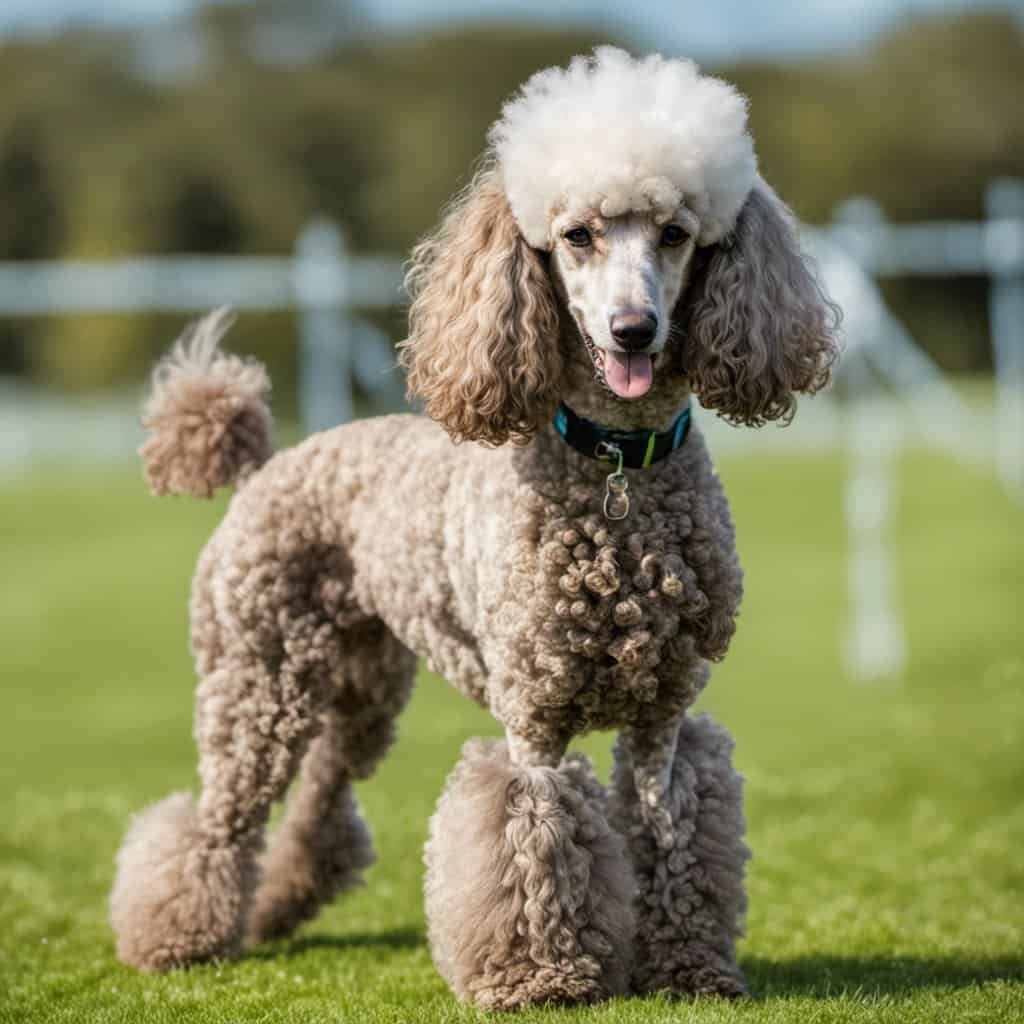
Exercise Needs and Activities
Poodles are active dogs that need regular exercise to keep their minds sharp and bodies healthy. It’s important not to underestimate the energy levels of these canines, regardless of size. Poodles come in three sizes – standard, miniature, and toy – but even the smaller toy poodle has stamina to spare.
These intelligent dogs excel in dog sports such as agility, obedience, and tracking. Historically used as hunting dogs due to their keen sense of smell and excellent swimming abilities, modern poodles still enjoy games that involve retrieving items or running courses.
Training Techniques for Poodles
Training a poodle is an engaging process thanks to their exceptional intelligence. Ranked among the smartest dog breeds by the American Kennel Club (AKC), poodles pick up new commands quicker than most other breeds.
Positive reinforcement techniques work best with this breed. Whether you’re dealing with a spirited puppy or an older rescue dog, rewards like treats or praise keep your poodle motivated during training sessions. Socialization from an early age helps ensure your pet grows into a well-rounded adult dog.
Proper Care And Training For Poodles
Proper care goes hand-in-hand with training when owning this popular breed. Regular grooming is key due to the characteristic curly coat of the breed which can become matted if neglected.
Brushing your poodle regularly not only keeps their coat looking its best but also provides an opportunity for bonding between pet parents and their furry friend. Diet plays a crucial role in maintaining your pet’s health too; always opt for high-quality dog food that caters to your pooch’s nutritional needs.
Lastly, remember that mental stimulation is just as vital as physical activity for this intelligent breed. Puzzle toys, advanced training, and even dog-friendly apps can all provide that much-needed mental workout.
In a nutshell, poodles are more than just the ‘National Dog of France’. They’re versatile workers with lively personalities – whether you’ve got an energetic standard poodle or a playful toy variant, proper training and care will ensure they live their best lives.
Grooming and Coat Maintenance
Every pet parent knows that grooming is a crucial part of poodle care. But when it comes to the Poodle, one of the most popular dog breeds in America according to the American Kennel Club, it’s important to keep in mind that their coats require more than just a quick brush.
For starters, you’ll need to brush your poodle every day. Due to their curly hair, mats and tangles can form quickly if not dealt with promptly. Regular brushing prevents these issues while keeping your poodle’s coat looking its best.
Poodles come in three sizes: standard, miniature, and toy. Regardless of size, all poodles share similar breed characteristics such as their distinct curly coats. However, each size may have slightly different grooming needs. For instance, smaller toy and miniature poodles might need less time for grooming due to their smaller surface area compared with larger standard ones.
In addition to daily brushing, regular trims are also part of essential Poodle maintenance. Whether you opt for a professional groomer or decide to take on this task yourself depends largely on your comfort level and experience with dog grooming tools.
It’s worth noting that Poodles were originally bred as hunting dogs which explains why they have such thick coats – they needed protection from harsh outdoor elements! Nowadays though since most pet owners don’t use their Poodles for hunting purposes anymore but rather consider them family members who live indoors mainly; hence maintaining their coat health has become an even more significant aspect of overall Poodle care.
Apart from routine brushing and trimming sessions; bathing should be done every 3-6 weeks depending upon individual dog’s lifestyle & skin condition etc., Additionally dental hygiene plays vital role too; so never underestimate importance good oral care!
And remember – while taking care of physical appearance is indeed necessary; mental well-being matters equally if not more! Hence always ensure enough playtime along fulfilling basic exercise requirements. After all, Poodles are known to be an active dog breed.
Finally, diet plays a role in coat health as well. High-quality dog food can contribute to a shiny and healthy coat. It’s recommended to consult with your breeder or a veterinarian for personalized dietary advice suitable for your Poodle’s age, size, and activity level.
In the end, regular grooming not only contributes to a healthier coat but also provides you with an opportunity to check for any skin issues or abnormalities that may require veterinary attention. So don’t see it as just another chore on your list! Rather take it as bonding time between you & your beloved furry friend; who knows this might become their favorite part of day!
Remember: A clean Poodle is a happy poodle!
Common Health Problems in Poodles
Diving into the world of poodles, it’s important to understand that this popular dog breed, just like any other, may face certain health issues. Poodle personality traits and breed characteristics are well-known, but we should also shine a light on potential health problems these dogs might encounter.
Overview of Potential Health Issues
Poodles come in three sizes: standard, miniature, and toy. Each size has its own set of common health issues. However, every pet parent needs to be aware that poodles are also susceptible to some general ailments. All sizes of poodle can suffer from hip dysplasia and progressive retinal atrophy (PRA), a degenerative eye disorder. The smaller toy and miniature poodles often encounter dental issues due to their small mouths.
Specific Health Problems in Poodles
Standard poodles tend towards larger-dog problems such as hip dysplasia and gastric dilation-volvulus (GDV) or bloat — a serious condition that requires immediate attention from your vet.
On the other hand, Toy and Miniature Poodles tend to have dental issues more frequently because their small jaws don’t always have room for all 42 adult teeth.
Another specific concern is Addison’s disease which affects the adrenal glands’ ability to produce hormones needed for bodily functions; it’s known as “the great pretender” because symptoms mimic many other illnesses.
Lastly yet importantly is epilepsy which is relatively common among all types of poodle breeds.
Importance of Health Clearances
Health clearances play an integral part in maintaining the overall wellbeing of your beloved pet – whether you’re dealing with a small dog or an active standard-sized one. As responsible pet owners or prospective adopters from a poodle rescue organization, it’s essential to get these clearances done by certified establishments recognized by the American Kennel Club.
Clearances for hips and elbows from the Orthopedic Foundation for Animals (OFA), eye clearance from the Canine Eye Registry Foundation (CERF), and DNA testing to rule out breed-specific issues are a few examples.
Preventive care will ensure that your poodle lives a long, healthy life full of dog sports, hunting expeditions or simply being the cherished family pet they’re often known to be. After all, keeping your poodle healthy doesn’t just mean regular grooming and brushing; it means taking an active role in safeguarding their health too!
Adopting or Buying a Poodle
You’ve surely heard about the renowned poodle personality, and it’s no wonder that you’re considering adopting or buying one of these popular dog breeds. After all, poodles are known for their charm, intelligence – often hailed as the smartest dog breed – and versatility. But before you make this big decision, let’s delve deeper into what owning a poodle truly entails.
In your quest to bring home a poodle, remember that they come in three sizes: standard, miniature, and toy. Each size has its own unique set of characteristics; however, all share common traits like being active dogs with an affectionate temperament. For instance, while the smaller toy and miniature poodles are perfect companions for apartment living due to their small size, they still require regular exercises just like any active dog breed would.
If you’re leaning towards adoption from a rescue center or organization such as the Poodle Club of America or American Kennel Club (AKC), it’s important to keep in mind that pet parents must be equally committed to providing appropriate care for their new family member. This includes feeding them high-quality dog food suitable for their specific breed and age group as well as ensuring regular grooming sessions since the distinct curly coat of a poodle needs frequent brushing to prevent matting.
On the other hand, if purchasing your furry friend is more up your alley – perhaps from a reputable breeder – it’s crucial to prioritize not only physical but also psychological health. Be sure that your chosen breeder carries out necessary health tests on puppy parents since some genetic conditions can impact both miniature and toy poodles’ health. In addition to this vital step in ensuring your potential pup’s wellbeing, getting insights into puppy parent temperaments will help give you an idea of what kind of personality traits your future pet may exhibit.
Lastly but far from leastly when choosing between adopting or buying a French Poodle – yes, although they originated in Germany, they are now the national dog of France – you should be prepared to commit to ongoing training. Despite being one of the smartest dog breeds, poodles will greatly benefit from consistent and positive reinforcement-based training methods.
In conclusion, whether you’re bringing home a toy or standard poodle, remember that every pet deserves love, care, and patience. The decision between adopting or buying a poodle is significant and may influence not only your lifestyle but also that of your new four-legged friend. So take this time to reflect on these considerations before welcoming a new member into your family.
Where to Find Poodle Puppies or Adults
Embarking on the journey of finding your new furry companion is an exciting time. Whether you’re searching for a poodle puppy or an adult, it’s important to know where to look and what to expect.
Poodles are one of the most popular dog breeds worldwide, known for their distinct personality traits and breed characteristics. They come in three sizes: standard, miniature, and toy – each with its unique charm. Keep in mind that smaller toy poodles might be more suitable if you live in a small apartment or have limited outdoor space.
One of the best places to start your search is with certified poodle breeders. The American Kennel Club (AKC) has an online directory where you can find reputable breeders who adhere strictly to ethical breeding practices. Another resource is the Poodle Club of America which provides information about breeders across different states.
| Resource | Description |
|---|---|
| American Kennel Club (AKC) | An online directory of reputable poodle breeders |
| Poodle Club of America | Provides information about poodle breeders across states |
Adopting from a rescue organization is another wonderful option. Many organizations such as ‘Poodles and Pals’ specialize in rescuing and rehoming poodles of all ages and sizes. Plus, adopting from a rescue means potentially saving a life while also finding your perfect pet.
Remember that whether you choose a breeder or rescue, it’s crucial that you visit potential pets before bringing them home. This gives you an opportunity to see first-hand their temperament, health condition, and how well they interact with people or other animals.
Lastly, don’t forget online platforms like Petfinder.com which connect prospective pet parents with animal shelters and rescues nationwide. These platforms make it easier than ever to find your ideal match – be it a lively puppy eager for training sessions or a calm adult poodle ready to snuggle on the couch.
Your journey towards finding your new best friend may require some patience and plenty of research. But once you find that perfect poodle, whether it’s a playful pup or an affectionate adult, every effort will surely be worth it!
Considerations for Poodle Owners
In your pursuit to understand the distinct personality traits of poodles, it’s important to remember that these popular dog breeds are as diverse as they come. They’re more than just their fluffy coats and prance-worthy trot; poodles are known for their intelligence—often ranked among the smartest dogs—and their active nature.
Poodles come in three sizes: standard, miniature, and toy. Each has its unique breed characteristics but shares common elements in temperament and health needs. The standard poodle may be larger than its counterparts but remains a symbol of elegance with an athletic streak. On the other hand, miniature and toy poodles pack a whole lot of personality into a small dog package.
As potential or existing pet parents, you should know “French” Poodle history actually originated in Germany where they were bred as hunting dogs before they became national dogs of France. Despite this interesting fact about poodles’ past, today’s breed is far removed from its hunting roots.
You don’t need to groom your poodle like it’s going for Best in Show at the American Kennel Club every day—but you shouldn’t neglect their coat either. Regular grooming keeps your poodle comfortable and minimizes shedding around your home. Brushing their coat daily can prevent matting while regular trims keep them looking their best.
When considering factors related to Poodle health, remember that every breed comes with potential risks—poodles included. They are prone to genetic predispositions for conditions like hip dysplasia or eye disorders. However, with proper care—including regular check-ups and quality dog food—a healthy lifestyle is often within reach.
Training forms another critical aspect of caring for this intelligent breed. Owing to their smartest dog reputation, agility training fits well within most Poodle personalities while also catering well to their active nature.
Lastly, whether you’re looking at puppy adoption through a poodle rescue or buying from a reputable poodle breeder, remember to do your due diligence. Adopting or buying a dog is a commitment and it’s essential for you to ensure that your choice will result in a happy home for both you and your new Poodle.
Becoming one of the many proud Poodle owners can be an enriching and rewarding experience. It takes understanding, patience, and care—but with their unique blend of intelligence, elegance, and charm—poodles are truly worth every effort.
Understanding the personality traits of Poodles is crucial for anyone considering this breed. They’re not just any small dog; they’re a bundle of energy, intelligence, and charm wrapped up in a curly coat. From the larger Standard to the smaller Toy, all sizes of Poodle have unique characteristics that set them apart.
With their roots as hunting dogs in Germany and status as the national dog of France, it’s no surprise that Poodles are known for their smartness. This isn’t just a Poodle fact; it’s an essential part of understanding Poodle history and why they’ve become one of the most popular dog breeds worldwide.
Your Poodle may be small or large – remember, Poodles come in three sizes! Grooming is important for all poodles, regardless of their origin. Brushing helps keep their curly coats healthy and prevents matting. Grooming also provides an excellent opportunity to check on your poodle’s health and ensure there are no hidden issues.
Their active nature means that participation in dog sports can be suitable for any size – from Standard down to Miniature and Toy versions. Regular exercise keeps them physically fit while stimulating their intelligent minds at the same time.
Poodles are also typically very sociable dogs who love being around people — another reason why they’re such popular pets! To bring out positive temperament aspects, it’s crucial to start socialization early and use consistent training methods.
Poodle puppies require lots of care when they’re young, so keep that in mind if you’re thinking of getting one. Don’t forget about proper nutrition too – a balanced diet is vital for maintaining good health!
In closing this article on “Poodle Personality,” we hope you’ve found valuable insights into what makes each breed variation special – whether it’s the standard, miniature, or toy poodle. Keep these points in mind, and you’ll be well on your way to sharing a rewarding relationship with your new active and intelligent friend.
Ready to Adopt a Poodle?
Find poodle rescues and adoption organizations near you. Give a loving poodle their forever home.






